The State of Self Storage in Canada
By: Lloyd McDonald, Director of Canadian Acquisitions

Self-storage in Canada has become an exciting and sought-after market class in the last 24 months.
The Canadian media started paying attention to the self-storage asset class with the announcement that Bill Gates, the Co-Founder of Microsoft has invested some of his wealth into self-storage. However, the truth of the matter is that investors and institutions have been migrating their investment dollars into “hard assets” with cash flow for some time. A multitude of factors has influenced this to occur.
Interest Rates: Low interest rates have resulted in historically low bond yields for investors, resulting in the search for cash flow from other/alternative investment classes.
COVID: When compared to other real estate asset classes, the self-storage industry has performed exceptionally well. Multi-family capitalization rates have become compressed due to the consolidation of assets from large public and private REIT’s in Canada. Additionally, multi-family landlords have been greatly limited in their ability to increase rates or evict tenants who fall behind on their payments. This has made it more difficult for the “mom & pop” operator to manage their assets in an efficient manner. Across the board, commercial retail real estate assets have experienced volatility due to businesses’ limited capacity to provide services in a COVID environment. Another factor is the trend of staycations has resulted in the purchase of more recreational items such as camping equipment, bikes, motor homes, boats, and sporting equipment. This has resulted in the need for storage increasing.
Resiliency of Self Storage: The self-storage space has seen an uptick in occupied units in most markets and I believe this is partially due to the use of technology that has allowed for self-storage Owners to manage their properties with limited personal interaction. The ability for a client to rent a unit online and set up auto payment options has resulted in high collection numbers. COVID has accelerated a trend that sees Owners utilize technology such as automated access and automatic billing for their clients. In addition, the storage industry has benefited from families who are in the position to downsize their family home, whether that is for economic reasons such as employment uncertainty or the natural aging of the baby boomers who are transitioning to accommodations with less storage space.
As storage becomes a more appealing asset class for investors, individuals looking to grow their portfolio have decided to invest in self-storage. As with any investment, there are obstacles for both buyers and sellers.
Buying: Often the facilities are valued based on Gross Potential Income. This results in the potential Owner paying more for the asset that the business itself is worth. Financial institutions will typically only lend on actual income (not gross potential income). This can result in the purchaser being required to place a larger down payment than expected to purchase the asset. Self-storage assets are in high demand and facilities that are listed through a Broker are “shopped” to the market. Often when Broker fees are factored into the purchase price, the buyer can pay above the market value of the asset without the income to support the additional fees. If a Buyer can deal directly with the Seller, it is often easier to facilitate a transaction that is a win-win for both parties.
Selling: It’s been my experience that Sellers struggle to determine the “fair market value” for their facility. The possible delta between what the broker feels the asset is worth and the business appraisal to obtain financing can derail possible transactions. Ideally, potential sellers would source a reliable company that offers valuation services with no commitment to list. This allows sellers an obligation-free way of determining the asset’s value.
Similar in nature to the US, there are different levels of activity based on the market. Traditionally, assets tend to sell more quickly closer to primary/urban markets and there has been extensive activity in these areas. However, we have seen a trend to transactions occurring in secondary and tertiary markets as the landscape for urban locations becomes more competitive.
Self-storage ownership in Canada is quite decentralized with 70% of owners having a single asset/location. There is a trend toward consolidation of storage assets. There are several groups in Canada that have consolidated or built a portfolio of assets over 1M Net Rentable Square Feet (NRSF). These firms would account for a great deal of the remaining 30% of the market, although there are still several mid-size regional operators across Canada.
If I was going to provide any advice for individuals looking to invest in Canadian self-storage I would recommend analyzing if you have the time and expertise to actively manage a facility. If the answer is no, then I would encourage the individual to seek out current storage owners who have an investment vehicle to purchase and manage a portfolio of assets on the investor’s behalf. Real Estate in general is a business that requires ongoing commitment and focus to learn about the industry and trends to maximize the value of your facility. If you’re unable to or unwilling to be an active investor, consider investing with the best owner/operator that you can find.
For any self-storage owners who are looking to sell their properties in the next year (+), get professional advice early in the process. This advice does not need to come at a “cost” to the seller. True storage professionals should be able to discuss your asset and the market without requiring a fee or a listing. When I speak with owners, I am very transparent in letting them know that there is no requirement or commitment on their end.
Typically, I see transactions stall for three possible reasons:
- Value. The owner isn’t aware of what the true value of their facility is and the buyer and the seller can’t agree on the business’ “fair market value”.
- Legacy. The owner hasn’t had a conversation with their family to determine if they want to keep the business within the family or if it is the desire of all family members to divest of the facility.
- Taxes. It’s important to speak with a tax accountant and tax attorney to make sure that your business is structured in a manner that allows the Seller to maximize the value of the facility.
If I could offer any additional insight, it would be you don’t build a business to sell, however, you should build your business so that it can be sold. It’s important to invest in technology and to have business systems and processes in place that allow for a potential buyer to assume the management of your facility. When I speak with owners early on in the decision to sell, I assist by showing them how to maximize the value of their asset. By being able to provide them knowledge about their competitors and what the market supports for acceptable amenities, I am able to support them in wise decisions to make their asset as valuable as possible. If an owner is looking to sell, partnering with an expert is essential to develop a roadmap for the future.
Lloyd joined The Storage Acquisitions Group in 2021 serving as the Director of Canadian Acquisitions. He has an extensive background in real estate and built a private financial services firm that placed over 1B of investor capital into multi-family, commercial, and industrial asset classes across North America. Most recently, Lloyd was instrumental in the consolidation of a national portfolio of self-storage assets in Canada. His talent for building relationships, analyzing businesses, and negotiating deals make him the ideal leader to oversee the Canadian market.


